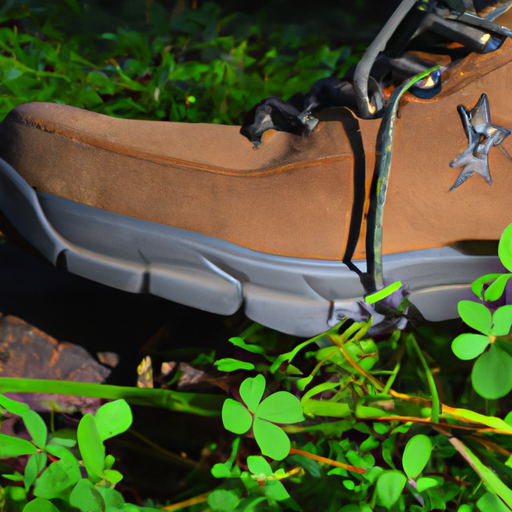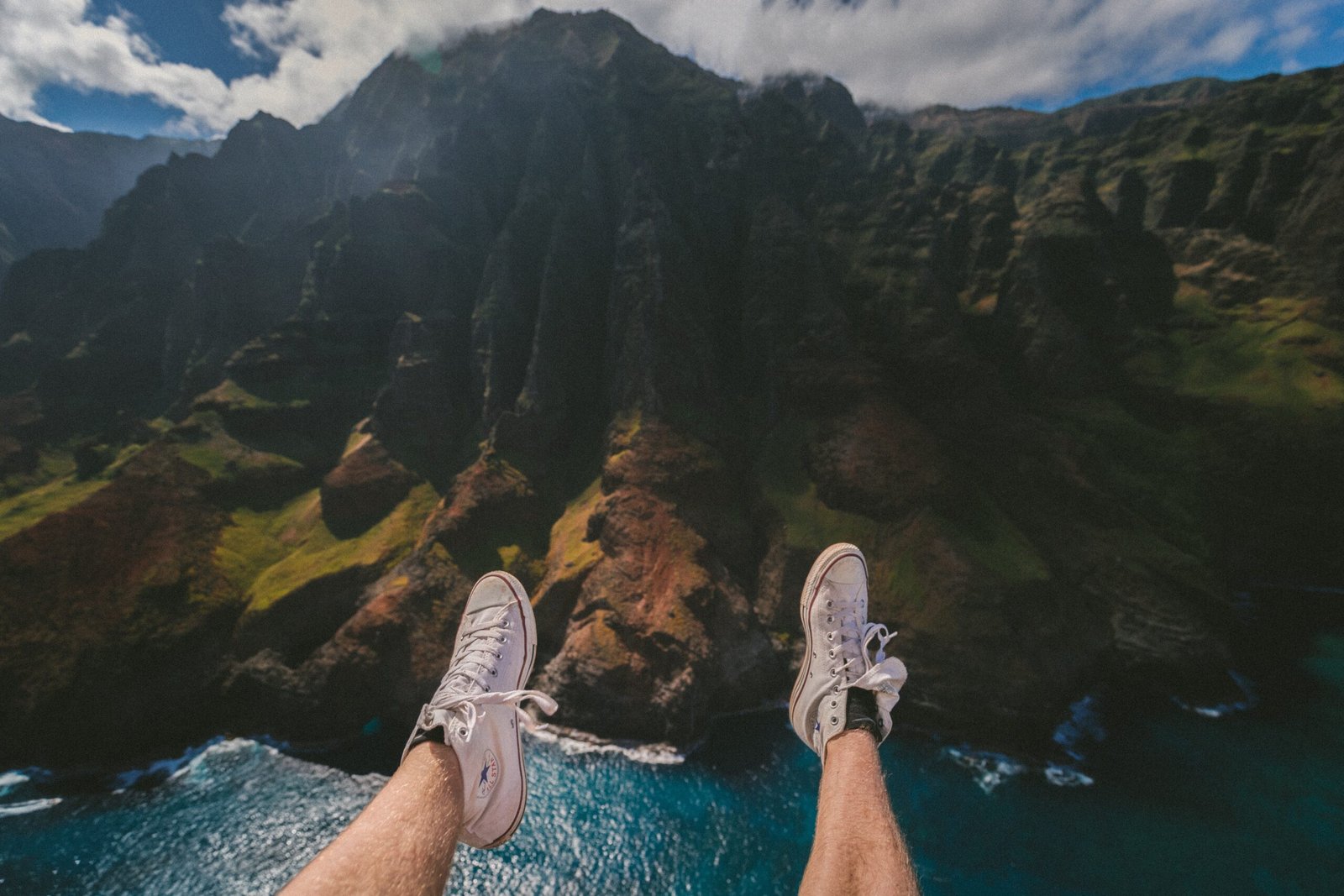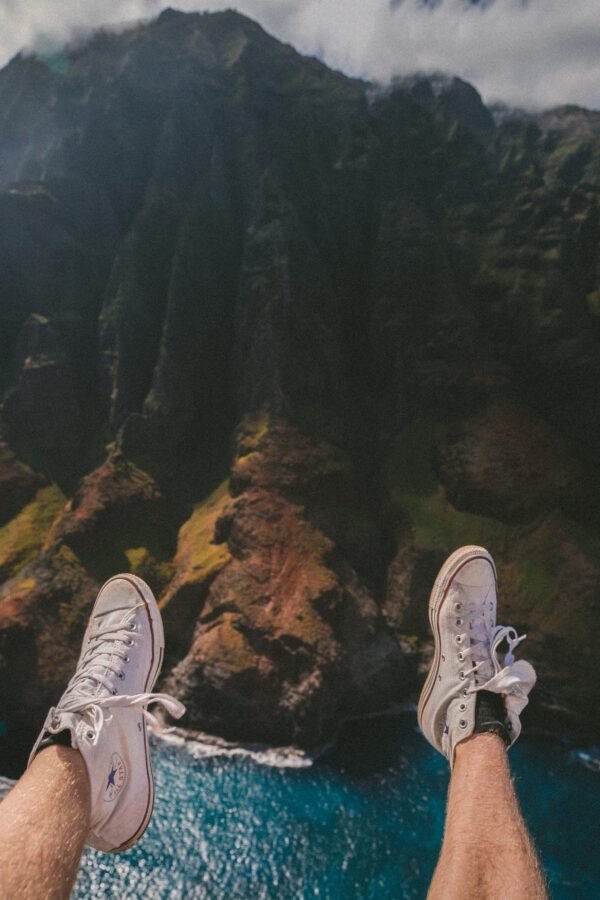Backcountry camping combines the allure of seclusion with the opportunity to connect with nature in its purest form. Unlike traditional campsites, backcountry campsites lack the convenience of public facilities, offering a more primitive experience. The appeal lies in the ability to explore remote areas and witness breathtaking sights that can only be reached by backpacking through rugged terrains. However, this type of camping requires careful planning and research to ensure a safe and successful adventure. It is crucial to be equipped with the ten essentials, including navigation tools, sun protection, and first aid supplies. Additionally, selecting the right gear is essential, with recommended backpacks, shelters, and sleeping bags that cater to the specific needs of backcountry camping. For an unforgettable outdoor experience, backcountry camping is a gateway to embracing solitude and discovering the true essence of nature.
Benefits of Backcountry Camping
Backcountry camping offers numerous benefits for outdoor enthusiasts seeking a unique and immersive experience in the wilderness. From seclusion and solitude to a connection with nature, backcountry camping allows individuals to escape the crowds and truly immerse themselves in the beauty of the natural world.
Check Other Tutti Camping Articles
Seclusion and Solitude
One of the key benefits of backcountry camping is the seclusion and solitude it provides. Unlike traditional campgrounds or RV parks, backcountry campsites are typically located in remote and undeveloped areas that are away from the hustle and bustle of civilization. This seclusion allows campers to disconnect from the pressures of everyday life and find solace in the tranquility of nature.
Connection with Nature
Backcountry camping offers a unique opportunity to connect with nature on a deeper level. Surrounded by pristine forests, majestic mountains, and stunning landscapes, campers can fully immerse themselves in the natural world. The absence of modern amenities and the simplicity of primitive camping allow individuals to rediscover the beauty of simplicity and appreciate the wonders of the environment around them.
Escape from Crowds
In today’s fast-paced and crowded world, finding a peaceful and uncrowded place can be a challenge. Backcountry camping provides an escape from the crowds and offers a reprieve from the constant noise and activity of urban areas. By venturing into the backcountry, campers can enjoy a sense of freedom and the opportunity to explore serene and untouched areas that are far away from the usual tourist hotspots.
Immersive Outdoor Experience
Backcountry camping offers a truly immersive outdoor experience that is unmatched by any other form of camping. With no public facilities or modern conveniences, campers must rely on their skills and resourcefulness to set up camp, cook meals, and survive in the wilderness. This self-reliance and independence foster a sense of accomplishment and create lasting memories of overcoming challenges in a beautiful and natural setting.
Features of Backcountry Campsites
Backcountry campsites differ significantly from traditional campgrounds and RV parks. They are typically characterized by their natural surroundings, lack of public facilities, and the opportunity for a primitive camping experience. These unique features contribute to the allure of backcountry camping and distinguish it from other forms of outdoor recreation.
Natural Surroundings
Backcountry campsites are situated in natural and untouched environments, offering campers the chance to immerse themselves in the beauty of the wilderness. Whether it’s camping in the heart of a dense forest, beside a serene lake, or on the slopes of a majestic mountain, these campsites provide a backdrop of stunning natural scenery that can’t be replicated in developed areas.
Lack of Public Facilities
Unlike traditional campgrounds with amenities such as flush toilets, showers, and electricity, backcountry campsites lack public facilities. This means that campers must rely on their own resources and equipment to meet their basic needs. While this may pose a challenge for some, it also provides an opportunity to disconnect from modern conveniences and embrace a more minimalist and self-sufficient lifestyle.
Primitive Camping Experience
Backcountry camping offers a primitive camping experience that allows campers to truly connect with nature and test their outdoor skills. Campers must bring their own gear, set up their own tents, and prepare their own meals using portable cooking equipment. This self-reliance and simplicity bring about a sense of accomplishment and allow individuals to experience outdoor living in its most authentic form.
Minimal Human Impact
Backcountry campsites are typically designed to have minimal impact on the environment. In order to preserve the natural beauty and integrity of these areas, campers are often required to follow Leave No Trace principles, which include packing out all trash, minimizing campfire impact, and respecting wildlife and vegetation. By minimizing human impact, backcountry campers help ensure that these pristine areas can be enjoyed for generations to come.
Advantages of Backpacking
Backpacking is a popular form of backcountry camping that offers several advantages for outdoor enthusiasts. From the ability to cover more ground and access remote locations to the opportunity to witness breathtaking natural scenery and discover hidden gems, backpacking provides a unique and rewarding outdoor experience.
Cover More Ground
One of the main advantages of backpacking is the ability to cover more ground compared to other forms of camping. By carrying all necessary equipment and supplies on their backs, backpackers are not limited by the proximity of established campgrounds or access points. This allows them to explore more remote and less-traveled areas, opening up a world of new possibilities for outdoor adventures.
Access Remote Locations
Backpacking provides the opportunity to access remote and hard-to-reach locations that are inaccessible by vehicles or even by day hikers. Whether it’s hiking deep into the backcountry, traversing rugged mountain trails, or exploring hidden valleys, backpackers have the freedom to venture off the beaten path and discover secluded and pristine areas that are off-limits to most other campers.
Breathtaking Natural Scenery
Backpackers are rewarded with breathtaking natural scenery that is often inaccessible to those who stick to established campgrounds or day hikes. Remote alpine lakes, towering peaks, cascading waterfalls, and pristine wilderness areas await those who are willing to put in the effort to reach them. The unparalleled beauty of these landscapes creates unforgettable memories and a deep appreciation for the wonders of the natural world.
Explore Hidden Gems
Backpacking allows outdoor enthusiasts to discover hidden gems and lesser-known destinations that are often overlooked by mainstream tourism. These hidden gems can include secluded campsites, secret fishing spots, hidden hot springs, or lesser-traveled trails with stunning vistas. By venturing into the backcountry, backpackers have the opportunity to explore these hidden treasures and experience the wilderness in a truly unique and personal way.
Planning and Research
Proper planning and research are essential for a successful backcountry camping trip. From choosing a suitable destination to understanding regulations, checking weather conditions, and obtaining necessary permits or licenses, taking the time to plan and prepare can make all the difference in ensuring a safe and enjoyable outdoor experience.
Choosing a Destination
When planning a backcountry camping trip, the first step is to choose a suitable destination. Consider factors such as the level of difficulty, distance from civilization, available amenities, natural features, and the time of year. Research different wilderness areas, national parks, and public lands to find the perfect location that matches your preferences and interests.
Understanding Regulations
Backcountry camping is subject to regulations and restrictions in order to protect the environment and ensure safety. Research and familiarize yourself with the rules and regulations of the specific area you plan to visit. This may include restrictions on campfires, on-trail or off-trail camping, food storage requirements, waste disposal, and bear safety protocols. Adhering to these regulations will not only protect the environment but also enhance the overall camping experience for yourself and others.
Checking Weather Conditions
Weather conditions can greatly impact the success and safety of a backcountry camping trip. Before heading out, check the weather forecast for your chosen destination and be prepared for changing conditions. Pack appropriate clothing layers, rain gear, and cold-weather essentials if necessary. Keep in mind that mountainous regions and higher elevations can experience rapid weather changes, so it’s important to stay informed and adapt as needed.
Obtaining Permits or Licenses
Many backcountry camping areas require permits or licenses to help manage visitor numbers and protect the environment. Research and find out if your chosen destination requires any permits or passes, and make sure to obtain them well in advance. Some popular areas may have limited permits available and may require reservations months in advance. By securing the necessary permits, you can ensure that you comply with regulations and have a guaranteed spot to camp.
Essentials for Backcountry Camping
When venturing into the backcountry, it’s crucial to be well-prepared and equipped with the necessary essentials to ensure a safe and comfortable camping experience. The following items should be included in every backcountry camping checklist:
Navigation Tools and Maps
Backcountry navigation relies heavily on reliable tools and maps. Carry a compass, GPS device, or smartphone with GPS capabilities to help navigate unfamiliar trails and terrain. Additionally, bring detailed topographic maps of the area you plan to explore to assist with route planning and decision-making.
Sun Protection Items
Proper sun protection is essential when spending extended periods of time outdoors. Pack sunscreen with a high SPF rating, a wide-brimmed hat to shield your face and neck, sunglasses with UV protection, and lightweight, breathable clothing that covers your skin. Don’t forget to reapply sunscreen throughout the day, especially if you’re in high-altitude or reflective environments.
First Aid Supplies
Accidents and injuries can happen in the backcountry, so it’s important to carry a well-stocked and comprehensive first aid kit. Include basic supplies such as adhesive bandages, gauze pads, antiseptic wipes, pain relievers, tweezers, and medical tape. It’s also a good idea to take a wilderness first aid course to learn how to effectively handle medical emergencies in remote areas.
Shelter Options
A suitable shelter is essential for backcountry camping. Consider factors such as weight, durability, and weather resistance when choosing a shelter option. Popular choices include lightweight tents, hammocks, or bivvy sacks. Ensure that your shelter provides adequate protection from rain, wind, and cold temperatures.
Water Filtration Systems
Access to clean and safe drinking water is crucial for backcountry camping. Carry a reliable water filtration system or purification tablets to treat water from natural sources such as streams, rivers, or lakes. Avoid consuming water directly from these sources without proper treatment to prevent waterborne illnesses.
Appropriate Clothing
Choose clothing that is appropriate for the expected weather conditions. Layering is essential to adapt to changing temperatures throughout the day. Include moisture-wicking base layers, insulating layers, and waterproof outer layers. Avoid cotton clothing as it retains moisture and can lead to hypothermia. Don’t forget to pack extra socks to keep your feet dry and blister-free.
Illumination Devices
Carry a reliable headlamp or flashlight with extra batteries to provide illumination during nighttime activities or emergencies. Opt for lightweight options that offer multiple brightness settings and have a long battery life. Additionally, consider bringing extra light sources such as lanterns or glow sticks for campsite illumination.
Fire Starters and Fuel
In many backcountry areas, campfires are an integral part of the camping experience. Pack reliable fire starters such as waterproof matches, a lighter, or a firestarter kit. Additionally, carry sufficient firewood or appropriate fuel sources depending on the regulations and restrictions of the specific area you plan to camp in.
Emergency Communication Device
In case of emergencies or unforeseen circumstances, it’s essential to have a reliable means of communication. Consider carrying an emergency satellite communication device or a personal locator beacon. These devices can help you send distress signals and alert authorities in remote areas with little to no cell phone coverage.
Food and Cooking Equipment
Plan and pack sufficient food for the duration of your backcountry camping trip. Opt for lightweight, non-perishable, and high-energy food options such as dehydrated meals, energy bars, nuts, and dried fruits. Don’t forget to bring appropriate cooking equipment such as a lightweight stove and fuel canisters, cooking pots, utensils, and food storage containers.
Recommended Backpacks for Backcountry Camping
Choosing the right backpack is essential for a comfortable and enjoyable backcountry camping experience. The following backpacks have been recommended by outdoor enthusiasts for their durability, comfort, and functionality:
Elemental Horizons Aquilo Pack
The Elemental Horizons Aquilo Pack is a popular choice among backcountry campers due to its lightweight design and customizable features. It offers ample storage space, durable materials, and a comfortable suspension system that can handle heavy loads. With its versatility and attention to detail, the Elemental Horizons Aquilo Pack is a reliable option for extended backcountry trips.
Deuter Futura Vario 45+10 SL Backpack
Specifically designed for female backpackers, the Deuter Futura Vario 45+10 SL Backpack offers a perfect fit and excellent load-carrying capabilities. It features a comfortable suspension system, adjustable torso length, and plenty of storage options. The backpack’s versatility and durability make it a popular choice among women who enjoy backcountry camping.
Osprey Exos 58 Men’s Backpacking Backpack
The Osprey Exos 58 Men’s Backpacking Backpack is a lightweight and feature-packed option for male backcountry campers. It boasts a suspended mesh back panel for superior ventilation, an adjustable harness system for a customized fit, and plenty of storage pockets. With its lightweight construction and comfortable carrying system, the Osprey Exos 58 is an ideal choice for those looking to cover more ground in the backcountry.
Osprey Eja 58 Women’s Backpacking Backpack
Designed specifically for female backpackers, the Osprey Eja 58 Women’s Backpacking Backpack combines comfort, durability, and functionality. It features a women’s-specific fit, an ultra-lightweight design, and a supportive suspension system. The backpack’s ergonomic design and customization options make it a favored choice among female backcountry campers.
Recommended Shelters for Backcountry Camping
Choosing the right shelter is crucial for a comfortable and safe backcountry camping experience. The following shelters have been recommended by outdoor enthusiasts for their durability, weather resistance, and ease of use:
Six Moon Designs Lunar Solo Tent
The Six Moon Designs Lunar Solo Tent is a lightweight and easy-to-pitch shelter that is well-suited for backcountry camping. It features a single-pole design, ample interior space for one person, and excellent ventilation. The tent’s lightweight materials and compact size make it a popular choice for solo backpackers looking to minimize weight without compromising comfort and protection.
Nemo Dagger 2 Tent
The Nemo Dagger 2 Tent is a spacious and versatile shelter that offers ample interior space for two people. It features a freestanding design, two large doors for easy entry and exit, and excellent weather resistance. The tent’s durability, ease of setup, and livability make it a top choice for couples or friends embarking on backcountry camping adventures.
Alps Mountaineering Lynx 1-Person Tent
The Alps Mountaineering Lynx 1-Person Tent is a lightweight and durable option for solo backpackers. It features a freestanding design, ample vestibule space for gear storage, and excellent weather protection. The tent’s affordability and ease of setup make it a popular choice for those seeking a reliable and budget-friendly shelter for their backcountry camping trips.
Check Other Tutti Camping Articles
The Wanderlust Complete Kit for Hammock Camping
For those who prefer hammock camping, The Wanderlust Complete Kit provides everything needed for a comfortable and secure night’s sleep in the backcountry. The kit includes a lightweight hammock, suspension system, bug net, rainfly, and tree straps. The Wanderlust Complete Kit offers a versatile and lightweight shelter option that is perfect for those looking to experience the unique comfort and freedom of hammock camping.
Recommended Sleeping Bags for Backcountry Camping
Choosing the right sleeping bag is essential for a restful and comfortable night’s sleep in the backcountry. The following sleeping bag has been recommended by outdoor enthusiasts for its warmth, durability, and versatility:
Sierra Designs Backcountry Bed 20F Sleeping Bag
The Sierra Designs Backcountry Bed 20F Sleeping Bag is a popular choice among backcountry campers due to its innovative design and exceptional warmth. It features an oval-shaped opening that mimics the comfort of a bed, an integrated comforter that can be tucked in for added warmth, and a waterproof footbox to prevent moisture absorption. The sleeping bag’s lightweight construction and high-quality insulation make it a top choice for those seeking superior comfort and warmth in the backcountry.
In conclusion, backcountry camping offers a unique and immersive outdoor experience that allows individuals to escape the crowds, connect with nature, and explore remote and beautiful locations. By understanding the features and benefits of backcountry campsites, embracing the advantages of backpacking, and properly planning and researching, outdoor enthusiasts can ensure a safe and enjoyable backcountry camping trip. By packing the essential gear and choosing the right backpacks, shelters, and sleeping bags, campers can embark on their adventures with confidence and make lasting memories in the natural wonders of the world.









